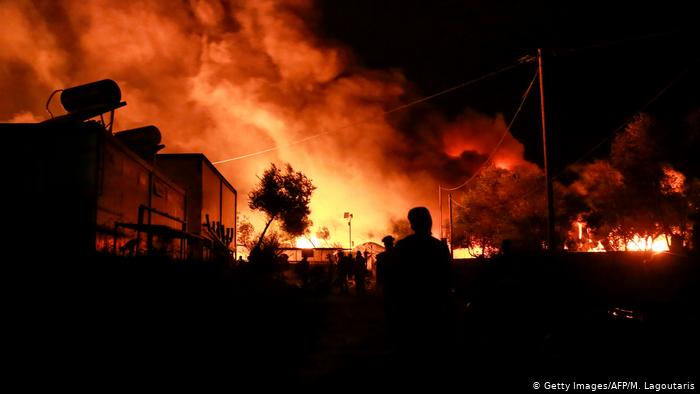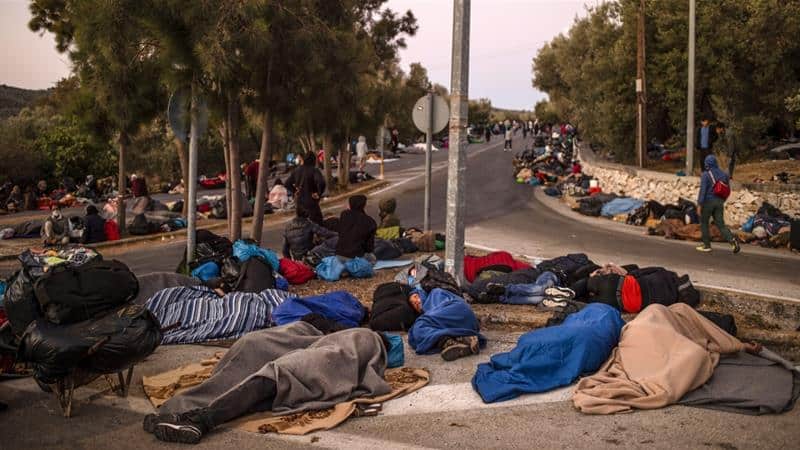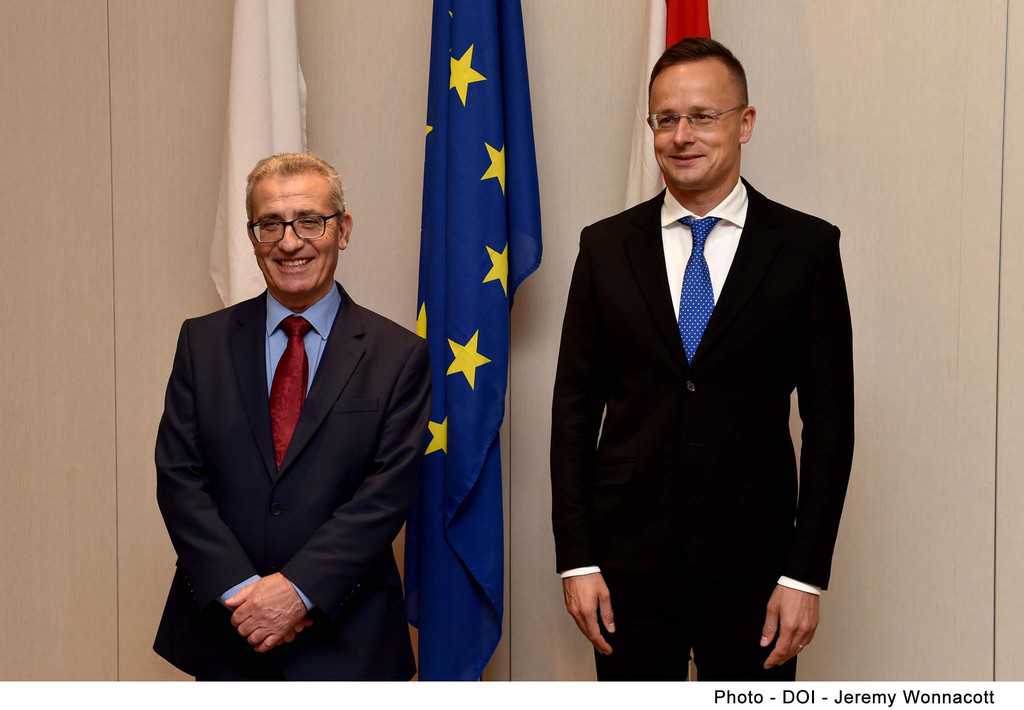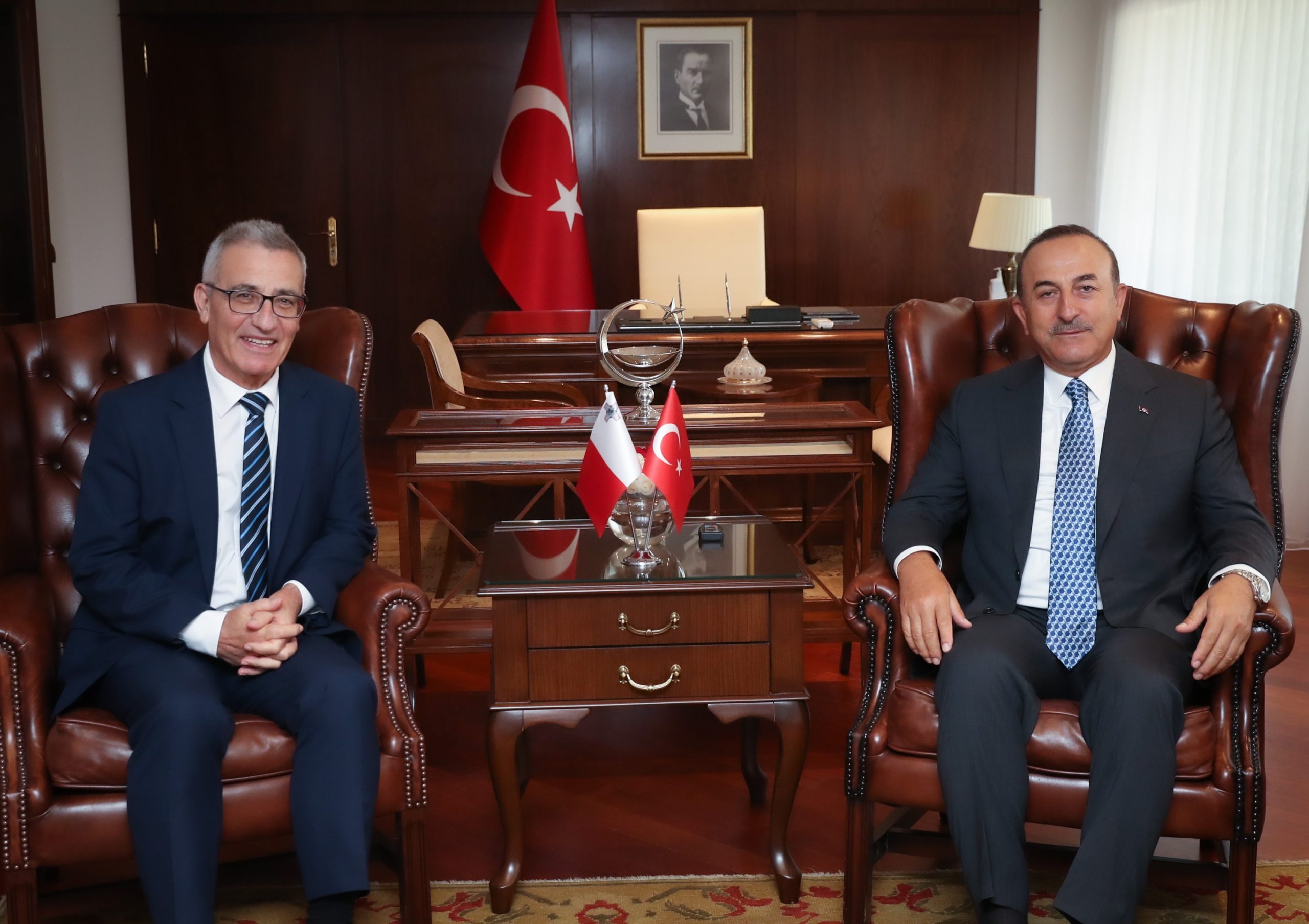Robert Abela stood with the heads of government of 6 other southern EU countries yesterday after a meeting in Corsica that was supposed to show a common front. As expected, Robert Abela underlined the challenge of migratory flows.
He rightly remarked that it was not practical to develop policy on managing migration on a boat by boat basis, which is ironic given that is exactly what he does. One boat is pushed back, another is left to its fate, another is directed towards Sicily, another is unloaded and its passengers imprisoned at sea, and so on. But Robert Abela was not speaking of his own policies but the policies of the European Union.
Too few of the other EU member states consider migratory flows up through the Mediterranean as a matter for their concern and migrants end up trapped in Italy and Greece, and in far smaller numbers but significant considering the size of the country, in Malta as well.
The issue came to Europe’s attention again after this week’s fire that gutted the Moria concentration camp on the island of Lesbos in Greece. 13,000 migrants lived there in miserable squalor. For the navel-gazing patriots that wax melodramatic about ratios, the population of Lesbos is of 86,000 people. Therefore, proportionately as a factor of the population, it would be like having a migrant camp here in Malta of 76,000 or the combined populations of San Pawl il-Baħar, Birkirkara and Mosta with a few extra to spare.

While Moria still stood, it was a picture of a damp hell. When it caught fire, the migrants slept on highways and in fields. There aren’t enough trees to sleep under. Residents of Lesbos took to their cars to block the roads to prevent volunteers delivering food, tents and basic supplies to the homeless masses who lost all they had in the fire. It is hard to think what the residents imagined the migrants escaping fire would do as a result of this ‘tactic’.

At length the Greek government dispatched three ships from its navy to provide some sort of night shelter instead of sleeping on tarmac. But that will accommodate 2,000 of the 13,000.
Greece is using this catastrophic event to underline Europe’s “lack of solidarity”. They have a point, and some acknowledge it. Angela Merkel announced yesterday, together with Emmanuel Macron, that their two countries would be taking on hundreds of unaccompanied minors from the camp. The German Chancellor remarked that migration cannot just be a Greek problem. Nor indeed merely a German problem. All European countries should step up and not allow the frontlines to handle this alone.
But Europe’s neglect is reflected in Greece’s own conduct. Greece is much larger than Lesbos. 13,000 people in Lesbos amount to a fifth of the island’s entire population. But as a ratio of the entire population of Greece, they’re a detail. Much as Europe treats Greece (and Italy, and Malta) as their front yard holding pen, Greece holds Lesbos (and Italy holds Lampedusa) as their own front yard holding pens.
There’s little evidence of solidarity there. The behaviour of Thessaly and Thrace, or Lazio and Lombardia is not dissimilar to the behaviour of Hungary and Poland. Migrants do not land there first so as far as these inland regions and countries are concerned, they can stay right where they land.
The concentration of migrants in specific locations in Malta is far less problematic and should therefore be far easier to solve. Redistribution within the country would likely achieve better results than cheap rhetoric, like some Adrian Delia regaled us with this week again.
But on the European theatre, Malta seems ever less keen to highlight the ethical misconduct and the lack of solidarity shown by countries who behave as if migrants do not exist. Foremost among the cowboys, notoriously, is Hungary.
It’s impossible to know what Evarist Bartolo told his Hungarian counterpart when they met here earlier this week. But there was no mention of redistribution of migrants that arrive in Malta, Italy and Greece in the Maltese government’s statement. There was no appeal for Hungarian solidarity with Malta or that Hungary should take a share of migrants Malta has rescued and that are still trapped here.

Instead, we have the Hungarian minister’s remarks after his meeting in Malta which sound like something Joseph Goebbels would have blushed drafting before 1940. Here’s an extract from a report of that meeting from the semi-official Orbanite Hungary Today:
Hungary and Malta have formed a new alliance based on identical assessments of the problems facing the European Union and their concurrence on the issue of migration, Foreign Minister Péter Szijjártó told a press conference after talks with his Maltese counterpart in Valletta on Tuesday.
“We agree that migration should be stopped rather than managed, especially in light of the coronavirus pandemic which has brought about new dangers [in Malta], too,” Szijjártó said. Whereas migration had been a risk in terms of security and cultural clashes, it is now a “tremendous” health risk, too, he said.
‘Migration should be stopped rather than managed.’ That phrase is both comically unrealistic and chillingly intimidating. And according to the Hungarian Foreign Minister, it is Malta’s official policy as we are now “allies” with Hungary’s inhumane policy that for years Malta, Italy and Greece with their erstwhile ally Germany and a few others have worked hard to overcome.
In Corsica Robert Abela campaigned for solidarity, supposedly holding a united front with the southern countries of Europe in their message to the rest of the Union. But what we are really doing is aligning ourselves with the obtuse and obdurate Hungarian policy that justifies “stopping” migrants at the cost of their dignity, their safety, even their lives.
Consider this other bit of double dealing in our foreign policy. At the Corsica summit southern European leaders stood firm with Greece and Cyprus over Turkey’s increasingly hostile expansionism in the eastern Mediterranean. Turkey is flexing its muscles, seeking to develop a hegemony on the region that will increase the dependence of others on its energy resources. This is a border skirmish as old as the Homeric poems but lines are being drawn in the geo-politics of the area as Turkish and Russian interests increasingly conflate.
Southern European countries yesterday said they stood firmly by their partners Greece and Cyprus. That is an important signal because it advises caution to Turkey that Europe will stand by its own. It’s a bit like how the entire European Union is standing by Ireland as the UK plays bully at the Irish internal border.
Robert Abela was less committed. He reminded everyone Malta is “neutral” which in a dispute between our European partners on one side and countries from outside amounts to a cop-out and a betrayal of friends. And after all, “neutrality” in our constitution refers specifically to Cold War ambivalence between two super-powers, one of which has not existed for almost 30 years which goes to show how Robert Abela was quoting a dead letter to get out of supporting his Greek and Cypriot counterparts.
He did say that Malta’s position is that disputes should be resolved in line with international law and through dialogue by diplomatic means. Which sounds right.
But Malta’s restraint in supporting its European partners in their issues with Turkey is not inspired by aspirations to international law and order. It’s far more cynical than that.

In Turkey’s expansionist program for creating an energy hegemony in its region, Malta is a useful mule. Our government has been bashfully receptive to Turkey’s flirtations and has rushed to open doors for Turkey’s intervention in Libya. The supposedly “neutral” Malta has been playing a three-way game with the Government of National Accord in Libya and Turkey, all the time while we know Turkey is shipping arms to the GNA on a regular basis in exchange for commitments to Turkey for access to Libya’s energy resources.
That’s hardly neutral now, is it?
It seems that what we get out of brokering this cynical arms-for-oil deal is the commitment from the Libyans to “stop” migrants, preferably somewhere in Chad or Algeria where they can roast in the deep Sahara beyond the reach of NGO rescuers.
In the midst of all this, talk of “solidarity”, “development aid”, “neutrality”, “international law” and “diplomatic dispute resolution” which as a small country in the European Union, Malta should be so well placed to credibly promote, becomes so hollow.
Instead we are standing as allies with the likes of Hungary, promoting racialist policies and supporting the breakdown of European cross-border freedoms and solidarity between European partners. We are leaving our European partners, including the ones from our very own region – the last friends we can rely on when everyone within the EU turns their back on us – to fend for themselves, proclaiming neutrality in disputes between our friends and others.
And we are cynically promoting our policies by facilitating the importation of weapons to fuel a civil war in a country right next to us while Turkey elbows out of the oil riches of Libya the countries with whom our balance of payments is as lopsided as it can be.
For the near objective of pandering to the racists within us, we are cutting ourselves off from the only countries that would answer our call when our time of need comes. For it will come.
Our ministers will tell themselves that they can’t conduct our international relations with naive idealism. They are playing hardball with the big boys, some good old-fashioned realpolitik of blood and iron: the blood of migrants, the iron of profits. But international relations are still relations between people. Incoherence, hypocrisy, inconsistency, double-talking and double-dealing may, as in everyday life, bring us short term rewards.
But when we don’t know who our friends are anymore, our friends won’t know us. We’ll live to regret this.